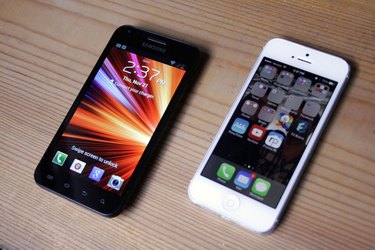
Some would-be smart phone owners find it difficult to choose between the iPhone and the Android. Both phones offer similar features, such as a music player, ability to install various third-party applications, and a software keyboard. The implementation of these features differs greatly between the iPhone and Android, however, and there are some surprising differences between the two.
Data Transfer
Video of the Day
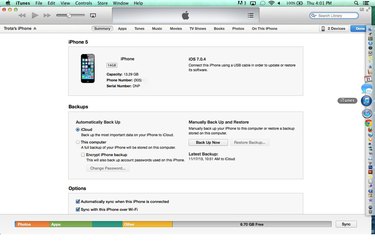
The iPhone is built to integrate seamlessly with iTunes, which makes syncing music, applications, and preferences easy. Android users must choose from a variety of third-party-developed programs, or "sync" manually by clicking and dragging files onto their phone.
Video of the Day
Interface
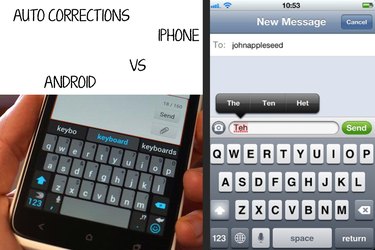
The iPhone includes multi-touch support, while the stock Android does not. (Users of rooted Androids can install applications that support multi-touch, however.)
The iPhone screen is larger than most Android screens, meaning navigation and keyboard typing is easier.
Android suggests a number of auto-corrections for misspelled words, while iPhone suggests only one.
Hardware
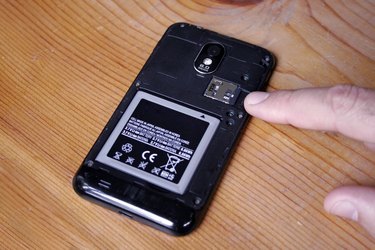
The iPhone does not support the addition of an SD card for increased storage, while most Android models do.
The Android operating system comes packaged with a wide variety of different hardware. The iPhone is only manufactured by one company, giving users no choice over the number and level of features on their phone.
Applications
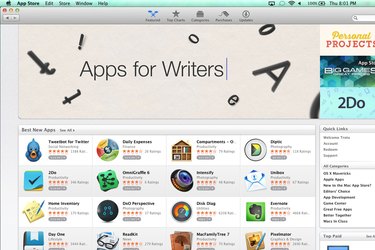
The Apple Store hosts over 50,000 applications for iPhone users to choose from. The Android Market contains slightly more than 5,000 applications.
All applications in the Apple Store must go through an Apple approvals process that has been the center of controversy. Android applications need not go through an approvals process.
Carriers
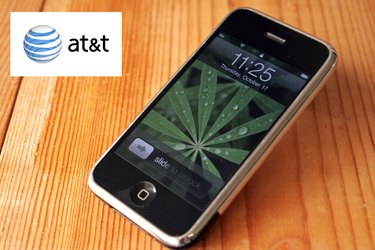
Officially, the iPhone only runs on the AT&T mobile network in the US. Users can unlock their iPhones to run on other carriers, but this is not officially sanctioned and may void the warranty. With the introduction of the new Google Nexus, Android users are no longer tied to one officially sanctioned network.